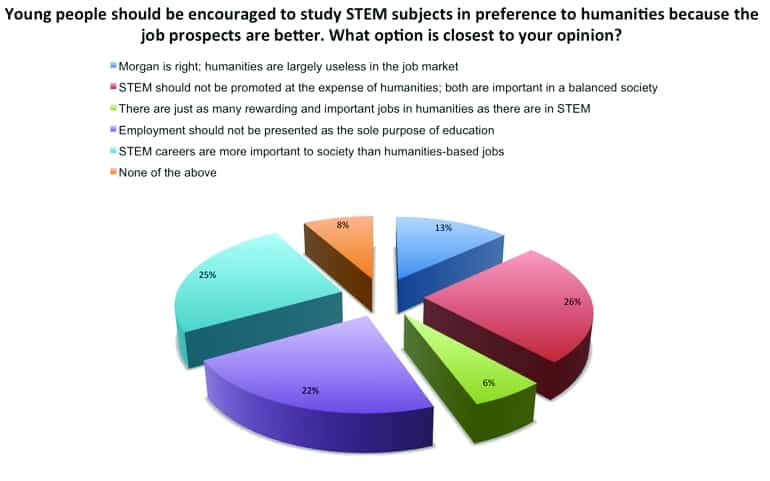Last week’s poll saw an interesting division of opinion split almost equally between just under three quarters of respondents. Inching ahead by one percentage point was the view that STEM should not be promoted at the expense of of humanities as both are seen as important in a balanced society. Just behind on 25 per cent were those taking the view that STEM careers are more important to society than humanities-based jobs; and 22 per cent agreed that employment should not be presented as the sole purpose of education.
The remaining 27 per cent of the vote saw 13 per cent of respondents believing humanites are largely useless in the jobs market; eight per cent not agreeing with any of the options presented to them; and six per cent taking the view that there are just as many rewarding jobs in humanities as there are in STEM.

What do you think? Let us know below.





Swiss geoengineering start-up targets methane removal
No mention whatsoever about the effect of increased methane levels/iron chloride in the ocean on the pH and chemical properties of the ocean - are we...